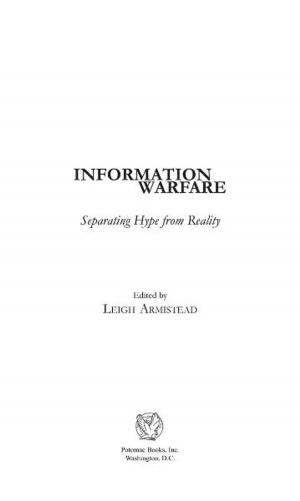The Open Society Paradox
Nonfiction, Science & Nature, Technology, Social Aspects, Social & Cultural Studies, Political Science| Author: | Dennis Bailey | ISBN: | 9781612343112 |
| Publisher: | Potomac Books Inc. | Publication: | November 30, 2004 |
| Imprint: | Potomac Books Inc. | Language: | English |
| Author: | Dennis Bailey |
| ISBN: | 9781612343112 |
| Publisher: | Potomac Books Inc. |
| Publication: | November 30, 2004 |
| Imprint: | Potomac Books Inc. |
| Language: | English |
How do we ensure security and, at the same time, safeguard civil liberties? The Open Society Paradox challenges the conventional wisdom of those on both sides of the debateùleaders who want unlimited authority and advocates who would sacrifice security for individual privacy protection. It offers a provocative alternative, suggesting that while the very openness of American society has left the United States vulnerable to todayÆs threats, only more of this quality will make the country safer and enhance its citizensÆ freedom and mobility.
Uniquely qualified to address these issues, Dennis Bailey argues that the solution is not to create a police state that restricts liberties but, paradoxically, to embrace greater openness. Through new technologies that engender transparency, including secure information, biometrics, surveillance, facial recognition, and data mining, society can remove the anonymity of the ill-intentioned while revitalizing the notions of trust and accountability and enhancing freedom for most Americans. He explores the impact of greater transparency on our lives, our relationships, and our liberties. The Open Society Paradox is a brave exploration of how to realign our traditional assumptions about privacy with a twenty-first-century concept of an open society.
Uniquely qualified to address these issues, Dennis Bailey argues that the solution is not to create a police state that restricts liberties but, paradoxically, to embrace greater openness. Through new technologies that engender transparency, including secure information, biometrics, surveillance, facial recognition, and data mining, society can remove the anonymity of the ill-intentioned while revitalizing the notions of trust and accountability and enhancing freedom for most Americans. He explores the impact of greater transparency on our lives, our relationships, and our liberties. The Open Society Paradox is a brave exploration of how to realign our traditional assumptions about privacy with a twenty-first-century concept of an open society.
How do we ensure security and, at the same time, safeguard civil liberties? The Open Society Paradox challenges the conventional wisdom of those on both sides of the debateùleaders who want unlimited authority and advocates who would sacrifice security for individual privacy protection. It offers a provocative alternative, suggesting that while the very openness of American society has left the United States vulnerable to todayÆs threats, only more of this quality will make the country safer and enhance its citizensÆ freedom and mobility.
Uniquely qualified to address these issues, Dennis Bailey argues that the solution is not to create a police state that restricts liberties but, paradoxically, to embrace greater openness. Through new technologies that engender transparency, including secure information, biometrics, surveillance, facial recognition, and data mining, society can remove the anonymity of the ill-intentioned while revitalizing the notions of trust and accountability and enhancing freedom for most Americans. He explores the impact of greater transparency on our lives, our relationships, and our liberties. The Open Society Paradox is a brave exploration of how to realign our traditional assumptions about privacy with a twenty-first-century concept of an open society.
Uniquely qualified to address these issues, Dennis Bailey argues that the solution is not to create a police state that restricts liberties but, paradoxically, to embrace greater openness. Through new technologies that engender transparency, including secure information, biometrics, surveillance, facial recognition, and data mining, society can remove the anonymity of the ill-intentioned while revitalizing the notions of trust and accountability and enhancing freedom for most Americans. He explores the impact of greater transparency on our lives, our relationships, and our liberties. The Open Society Paradox is a brave exploration of how to realign our traditional assumptions about privacy with a twenty-first-century concept of an open society.















